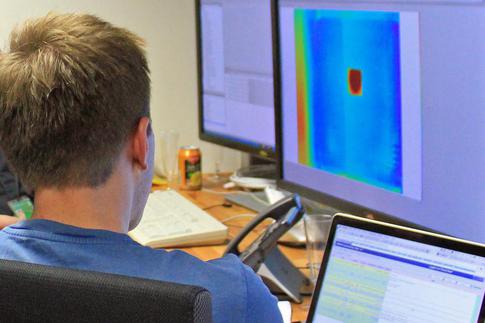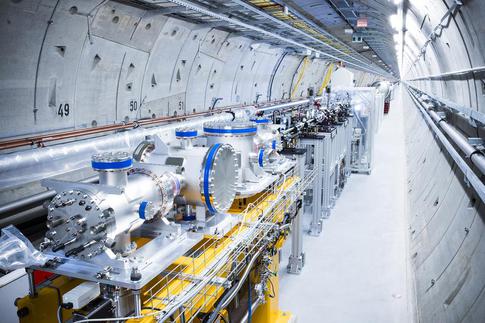XFEL: Scientific work continues despite reduced operation
https://www.xfel.eu/e35178/e35455/e35456
https://www.xfel.eu/news_and_events/news/index_eng.html
news
news
news
eng
1
1
10
both
0
1
%Y/%m/%d
Press-Release
eng,ger

European XFEL staff will concentrate on activities that do not require presence in the facility such as analysing data from previous user experiments, preparing peer-reviewed publications, working on technical documentation for the devices and infrastructure, further improving the performance of instruments, and analysing and developing new workflows that will improve efficiency when the facility resumes full operation. Collaboration both within and beyond the facility will be actively maintained to continue development of new projects at the forefront of science. Getting the accelerator back to full performance from the safe state will take at least four to six weeks. The user experiments planned in the current series of experiments (Run 5, spring 2020) will be rescheduled to the time reserved for Run 6 (autumn 2020). Run 6, for which proposals have been submitted, will also have to be postponed and very likely shifted to 2021. The exact dates will depend on the development of the SARS-CoV-2 situation worldwide. The call for proposals in June 2020 for Run 7 is cancelled. The next call for proposals will not be earlier than at the end of the year.
Getting the accelerator back to full performance from the safe state will take at least four to six weeks. The user experiments planned in the current series of experiments (Run 5, spring 2020) will be rescheduled to the time reserved for Run 6 (autumn 2020). Run 6, for which proposals have been submitted, will also have to be postponed and very likely shifted to 2021. The exact dates will depend on the development of the SARS-CoV-2 situation worldwide. The call for proposals in June 2020 for Run 7 is cancelled. The next call for proposals will not be earlier than at the end of the year.
2020/03/19
Back
Scientific work continues despite reduced operation
European XFEL will reduce operation from Saturday 21 March with work continuing via telecommuting.
Due to the rapid spread of the new coronavirus SARS-CoV-2, European XFEL will reduce operation from Saturday 21 March and the majority of staff will work by telecommuting. Operation of the free-electron laser will cease, but critical services will be maintained. The superconducting accelerator will be put in a safe state to avoid damage to the accelerator and other equipment if major technical infrastructure services need to be discontinued.

Download [1.3 MB, 1772 x 1182]
The majority of European XFEL staff will work by telecommuting during reduced operation in response to the spread of coronavirus SARS-CoV-2..
The majority of European XFEL staff will work by telecommuting during reduced operation in response to the spread of coronavirus SARS-CoV-2..
European XFEL staff will concentrate on activities that do not require presence in the facility such as analysing data from previous user experiments, preparing peer-reviewed publications, working on technical documentation for the devices and infrastructure, further improving the performance of instruments, and analysing and developing new workflows that will improve efficiency when the facility resumes full operation. Collaboration both within and beyond the facility will be actively maintained to continue development of new projects at the forefront of science.
For the minimal number of staff present at the facility, extensive precautionary measures have been implemented such as social distancing, campus access restrictions, regular cleanings and the provision of disinfectant.

Download [1.7 MB, 1772 x 1181]
The free-electron laser European XFEL will reduce operation from Saturday 21 March.
The free-electron laser European XFEL will reduce operation from Saturday 21 March.
